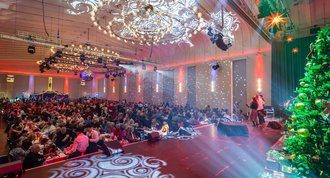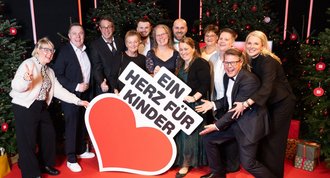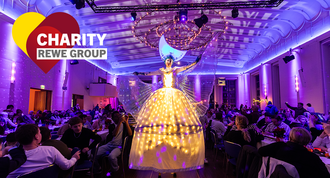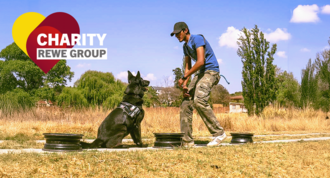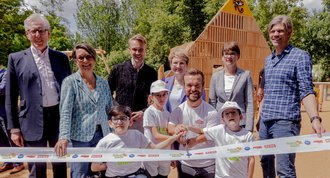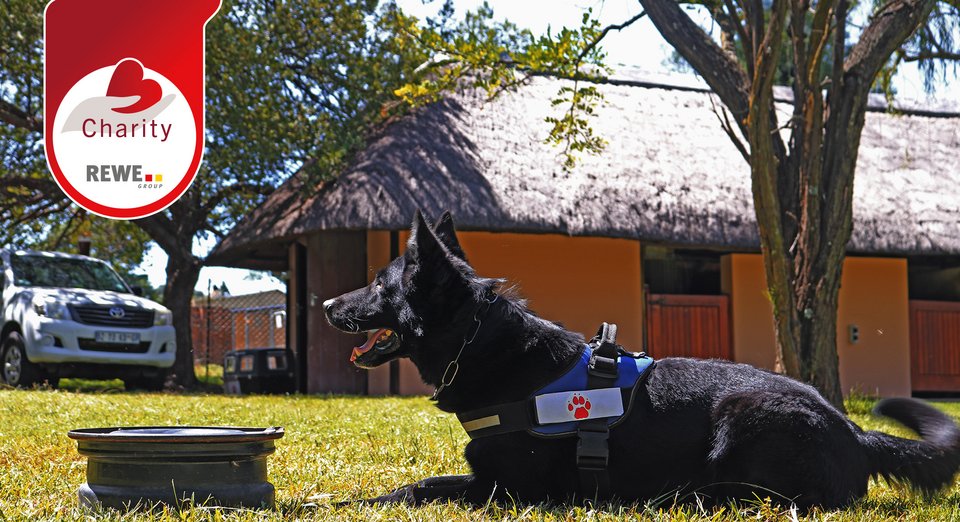
Animals protect animals: In South Africa, wildlife sniffer dogs not only sniff out horn or ivory, but also firearms and ammunition. In addition to detecting poaching products, this also curbs the illegal arms trade. The DER Travel and Tourism Foundation supports this project together with partner Endangered Wildlife Trust (EWT). We asked Kathrin Sommer, Sustainability Manager at DER Travel and Tourism Group, and ETW Conservation Manager Lourens Leeuwner - he works with the dogs on site.
The Pilanesberg National Park in South Africa - seemingly an idyll. Around 150 kilometres northwest of Johannesburg, a 55,000-hectare hilly landscape stretches around an extinct volcano: a refuge for hundreds of different species of wild animals, including the famous Big Five, i.e. elephants, rhinos, Cape buffalo, lions and leopards.
But the idyll is fragile, as the rare animals are severely threatened by poaching. Poachers are after their meat and wild animal products such as tusks and horns.
"Poachers are particularly keen on rhino horn. The horn is said to have almost magical powers - in powder form, it is said to help against diseases, provide vitality and much more. This is why it is smuggled for horrendous sums of money, especially to Asian countries," reports Lourens Leeuwner, Senior Conservation Manager at project partner ETW.
The populations of elephants, rhinos, lions etc. were in sharp decline until 2019, but were able to stabilise during the COVID-19 pandemic. However, since travel restrictions were eased, poaching has also increased again, putting wildlife at risk once more.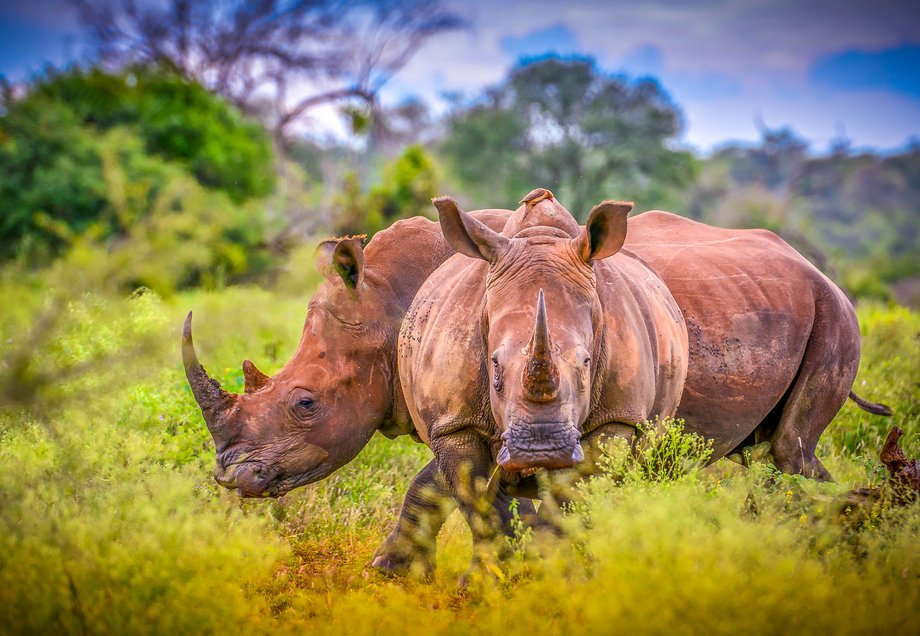 Getting support from the sniffer dogs: rhinos, a favourite among poachers © Mauritz Janeke - Getty Images
Super noses hunt down arms smugglers
Getting support from the sniffer dogs: rhinos, a favourite among poachers © Mauritz Janeke - Getty Images
Super noses hunt down arms smugglers
Together with the Endangered Wildlife Trust (EWT), the DER Travel and Tourism Foundation is fighting against the illegal practices of poachers and is receiving animal support from trained noses. Both sniffer and tracking dogs are to help curb poaching in the extensive area.
The wildlife sniffer dogs are trained to sniff out not only horn or ivory, but also firearms and ammunition. In addition to detecting poaching products, this also helps to curb the illegal arms trade. On their working days, the dogs and their handlers check dozens of vehicles and their cargo at the park's entry and exit points.
This is no easy task, as the region is highly urbanised with heavy traffic. The 120 kilometre-long fence around the park is surrounded by well-developed roads, many of which can be crossed without a permit. The confusing, hilly landscape makes it even easier for poachers to evade controls. But in the bushveld, specially trained tracking dogs have the right nose and follow the tracks of suspicious persons.
The DER Travel and Tourism Foundation supports the EWT with funding for a dog handler, a sniffer dog and a tracking dog and their medical care. The dog and handler are a close-knit team. The dog handler takes care of the needs of his animal partner, whose well-being has the highest priority.
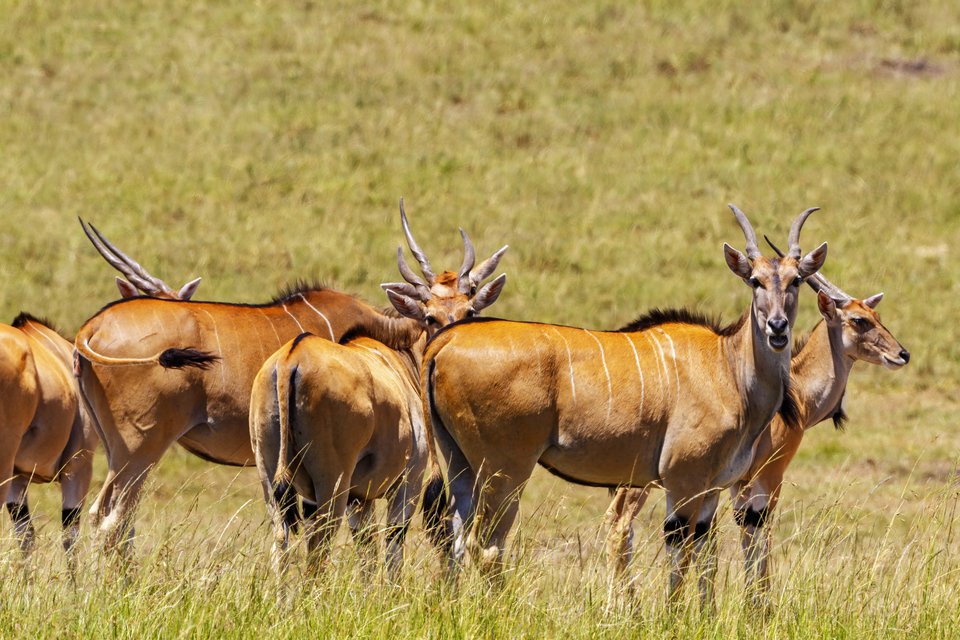
one: Lourens, you have been campaigning for the protection of wild animals around the world for over 20 years. What motivated you to do this?
Lourens Leeuwner: I grew up on the coast of South Africa and spent my youth outdoors in the coastal forests and on the beach. I have always loved nature and decided at a young age that I had to work to preserve our natural environment. Everything seemed so fragile and man's impact on the world was something I didn't like. After graduating in 2002, I was able to travel all over South Africa and work in the field of conservation - a real privilege.
„Every time we relocate a new pack of dogs to a sanctuary, I am very proud to be part of this important work.“

one: You've certainly experienced a lot in 20 years in nature conservation - especially a lot of sad things. But what have been your favourite moments in this job?
Lourens Leeuwner: Yes, it's important to focus on the positive things, because there is a lot of sadness out there. As a student, I spent twelve months working in the Kgalagadi Transfrontier Park, an amazing ecosystem with many leopards, lions and large herds of eland (editor's note: eland is a large species of antelope) living in a 3.8 million hectare semi-arid environment. I have so many fond memories of my time there. Lately, I have also been encouraged by the great work the EWT team is doing to protect the wild dogs. Every time we relocate a new pack of dogs to a sanctuary, I feel very proud to be part of this important work.
one: What is special about working with sniffer and tracking dogs?
Lourens Leeuwner: The sniffer dogs are enormously useful in the fight against poaching. They are also an excellent deterrent for poachers who want to target a particular reserve. It is amazing to me how focussed the dogs are when they are searching for tracks or tracking down a vehicle. Some of the dogs work very quickly, almost frantically, while others work slowly and carefully. They are all different! But they all have one thing in common: the visible joy they feel when they correctly indicate a target track. They are so happy to get their reward (the favourite toy) that you have to smile every time it happens.
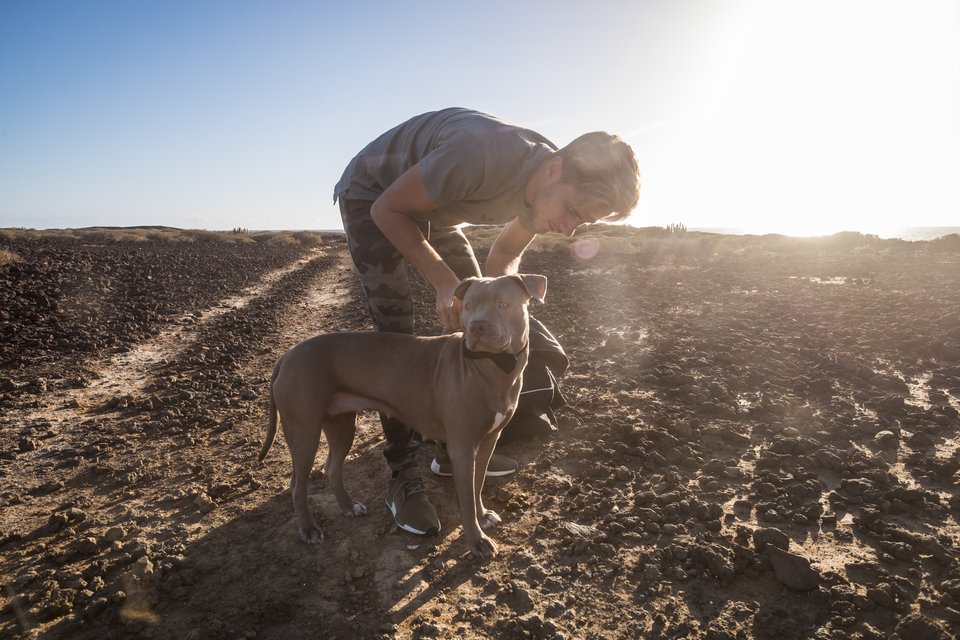
one: Mrs Sommer, the DER Travel and Tourism Foundation has expanded its global commitment with seven new projects, including the wildlife detection dog project in South Africa. Why did you choose this one?
Kathrin Sommer: As a tourism company, DER Travel and Tourism's business depends on an intact environment for people, nature and animals. That's why the DER Travel and Tourism Foundation was established in 2014 to support projects in precisely these three pillars in tourist regions around the world.
For a few years now, we have been increasingly involving our local agencies in the search for projects. The colleagues in the destination country can better assess where there is a need for support.
Our agency in South Africa warmly recommended the Endangered Wildlife Trust's wildlife detection dog project to us. The NGO has a very good reputation locally and has been working successfully in the field of anti-poaching for 50 years. The issue of poaching has unfortunately become more virulent again since the end of travel restrictions due to corona. We are therefore happy to help EWT to curb the problem in an "unusual" way.
„On request, our travellers can take part in a training session with the sniffer dogs and see for themselves how the dogs use their sniffer noses.“

one: Are your travellers in South Africa aware of the project?
Kathrin Sommer: We are a tourism company, so it makes sense for us to support tourism-related projects that can ideally be experienced first-hand in the tourist destinations.
For a few years now, we have been making this possible in our sponsorship projects, including our new project in South Africa. We draw attention to the project in our South Africa catalogues and online. We also provide information about the project work directly at the lodges in the Pilanesberg National Park. On request, our travellers can take part in a training session with the sniffer dogs and see for themselves how the dogs use their sniffer noses.
one: How have your customers responded to your commitment? Or, to put it another way, do you think the commitment of the DER Travel and Tourism Foundation will ultimately be reflected in the booking figures?
Kathrin Sommer: The response from our customers to our commitment is very positive. Sustainability issues have become even more important in recent years, especially due to corona.
I firmly believe that the Foundation's work also indirectly contributes to our guests' identification with DER Travel and Tourism as a tour operator and will also be reflected in the booking figures. True to the motto "Do good and talk about it", we want to get even more guests excited about our Foundation's work in future and encourage them to support it through a wide variety of channels. We are proud to have supported over 90 projects for people, nature and animals in tourist regions around the world for almost ten years and to be able to make a small difference in this way.
Our cooperation partner: Endangered Wildlife Trust (EWT)
The registered non-profit, non-governmental organisation has developed into a leading and trustworthy player in nature conservation since it was founded in 1973. Its profile is steadily increasing. The EWT is committed to the conservation of endangered species and ecosystems in Southern Africa and East Africa for the benefit of all - animals, people and nature alike.
Would you like to donate?
The new sniffer dog project of the DER Travel and Tourism Foundation is one of the four employee donation projects of the REWE Group. If you would like to support this or another of the projects with a monthly salary donation of 1, 5 or 10 euros, you can do so using the donation form.
You can find more answers to important questions about the four employee donation projects here.

